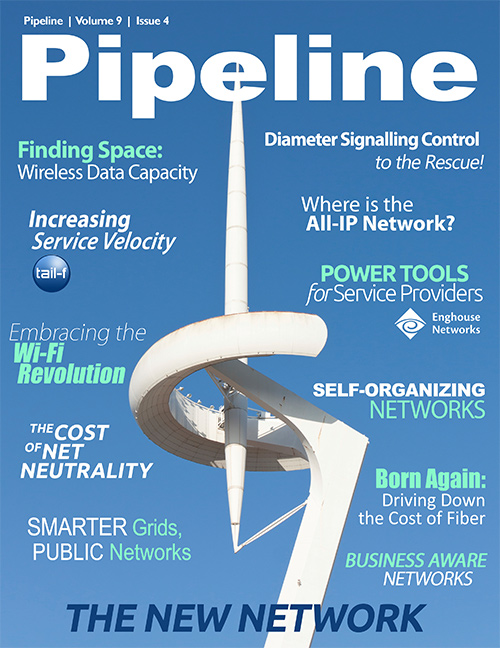“Should providers be allowed to determine who gets easy access and who gets difficult access?” - Professor Noam Chomsky
Who really owns the networks? Consumers.
Professor Noam Chomsky, who feels the fight to keep the internet “free and open” is critically important, reminds us that the internet itself was developed in the public domain.
“The internet was handed over to the corporations as a gift,” Chomsky says. “Should providers be allowed to determine who gets easy access and who gets difficult access?”
Only litigation and regulation will ultimately write the end of the tale, but with The Netherlands and others quickly following the Net Neutrality trend, networks will have to turn to
other--content agnostic--means of generating revenue while under a crush of data demand. In fact, Cisco makes the following predictions about mobile data traffic alone in the next five years:
• Monthly global mobile data traffic will surpass 10 exabytes in 2016
• Over 100 million smartphone users will belong to the "gigabyte club" (over 1 GB per month) by 2012
• The number of mobile-connected devices will exceed the world's population in 2012
• The average mobile connection speed will surpass 1 Mbps in 2014
• Due to increased usage on smartphones, handsets will exceed 50 percent of mobile data traffic in 2014
• Monthly global mobile data traffic will surpass 10 exabytes in 2016
• Monthly mobile tablet traffic will surpass 1 exabyte per month in 2016
• Tablets will exceed 10 percent of global mobile data traffic in 2016
• China will exceed 10 percent of global mobile data traffic in 2016
And with access-only related revenues on the table, that puts networks in a tough spot. Net Neutrality cuts off a significant potential market for operators and will force them to compete
head-to-head with the very bandwidth hungry OTT players driving the data charge by providing their own compelling services. And while arguments over inches of Net Neutrality ground are being
battled in court rooms, there are significant gains to be made in providing services based on the information the network itself captures about the consumer, rather than charging based on the
content being consumed. From mobile advertising to mHealth, risk management to connected homes, it's the ability of networks to create and partner with ComIT innovators that will ultimately
put an end once-and-for-all to the Net Neutrality Boogie Man just over the next horizon.



















